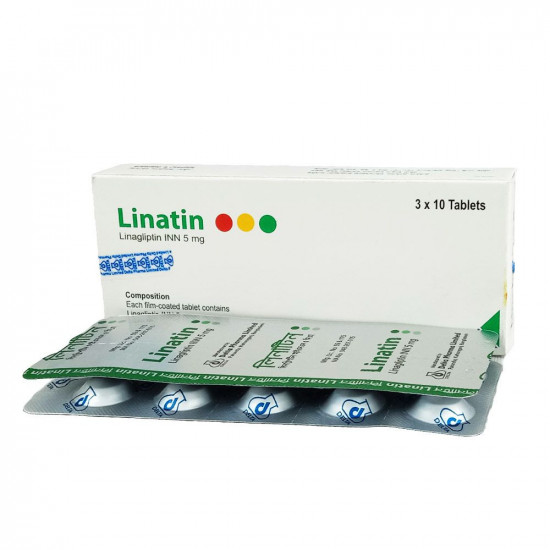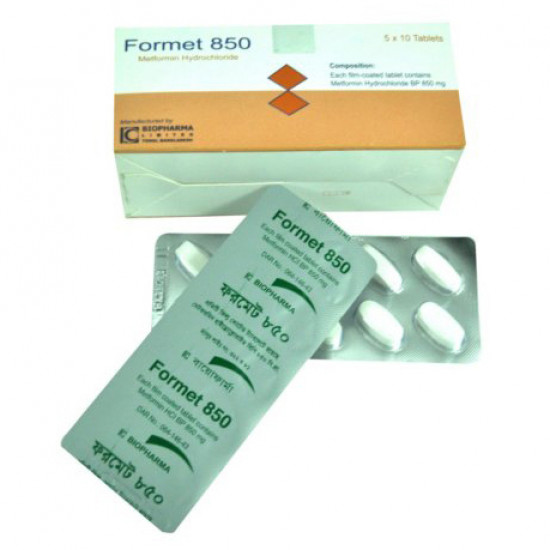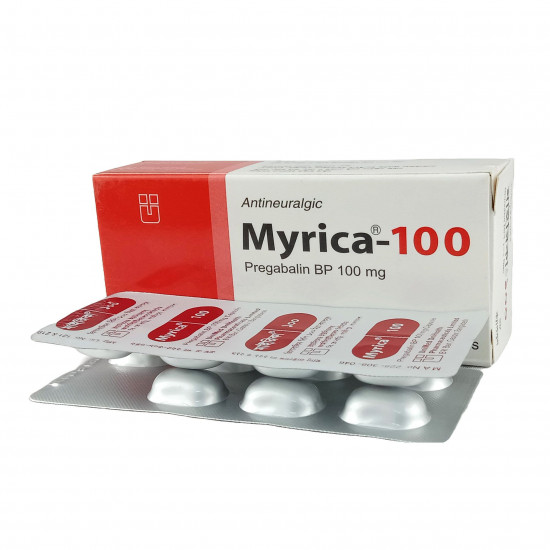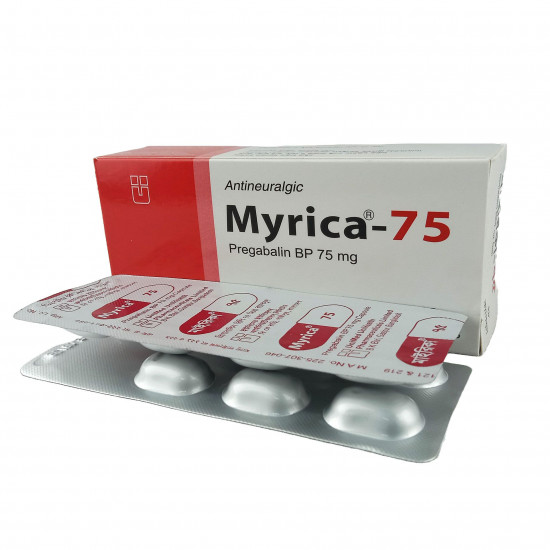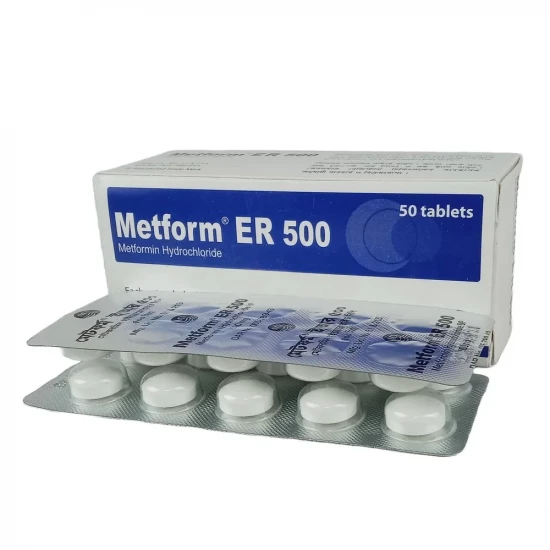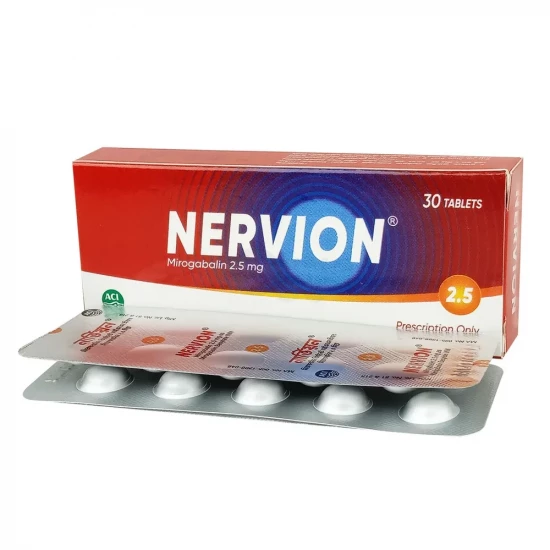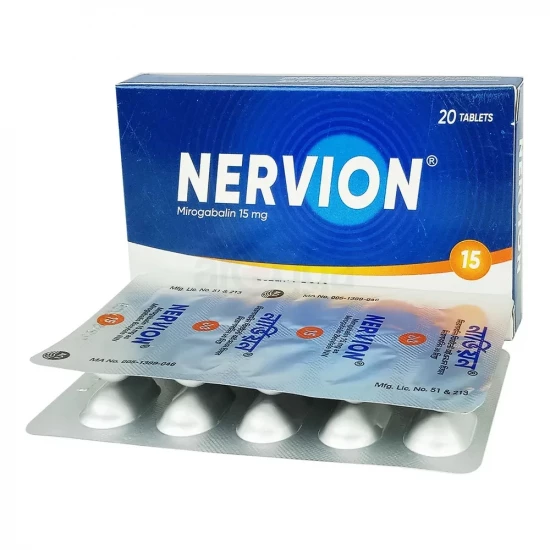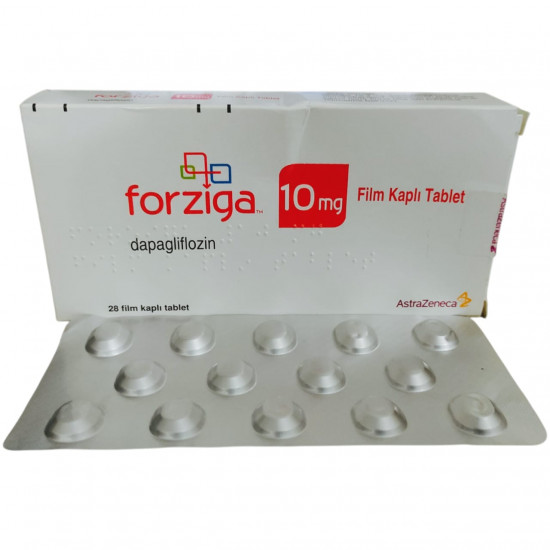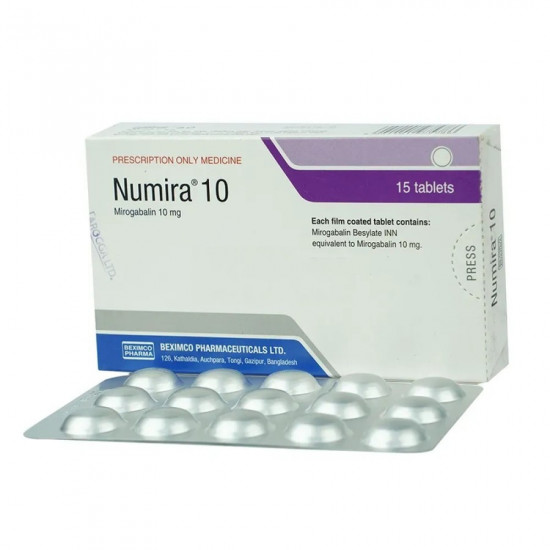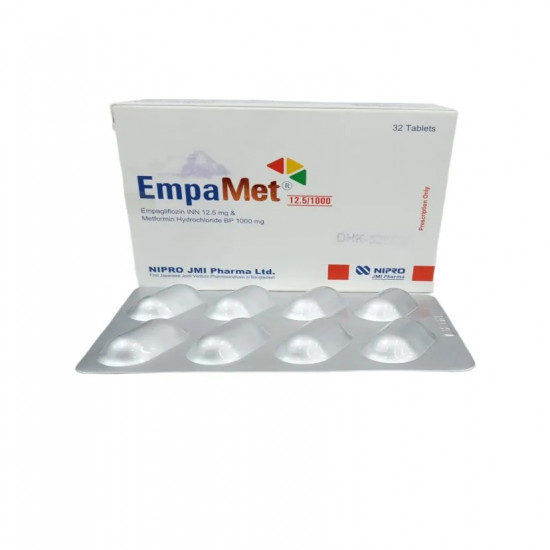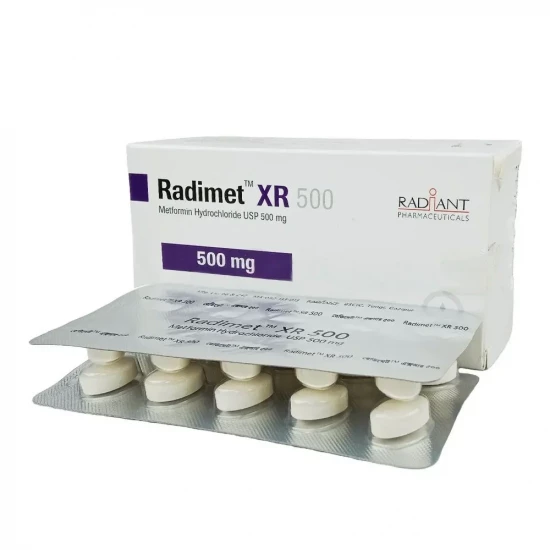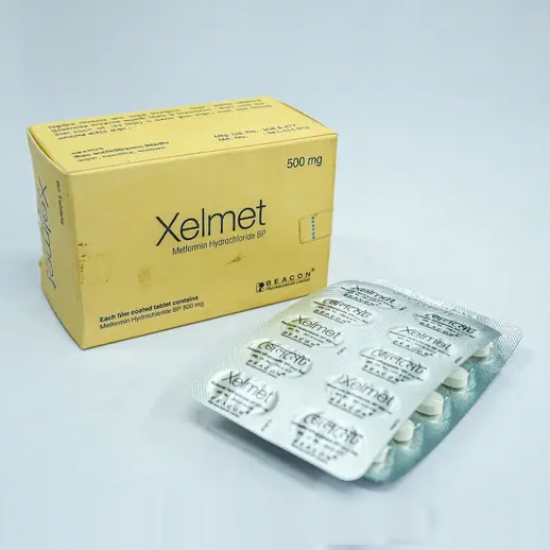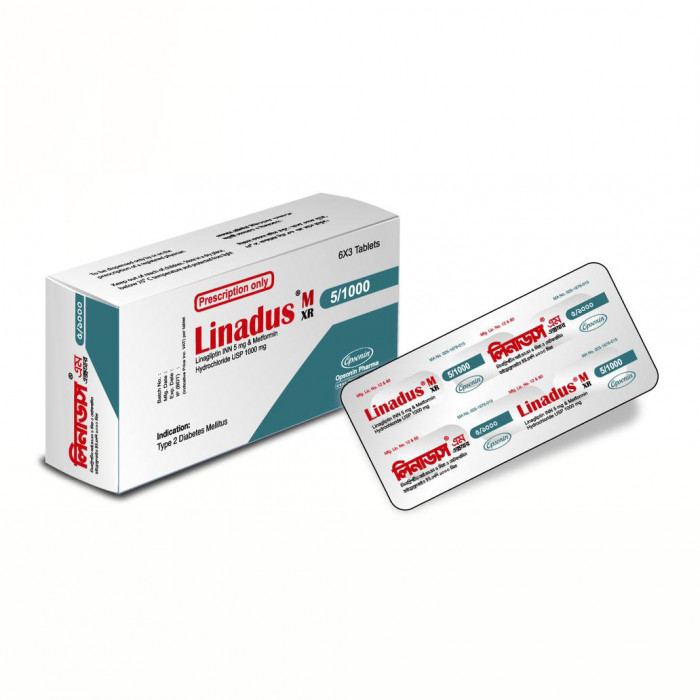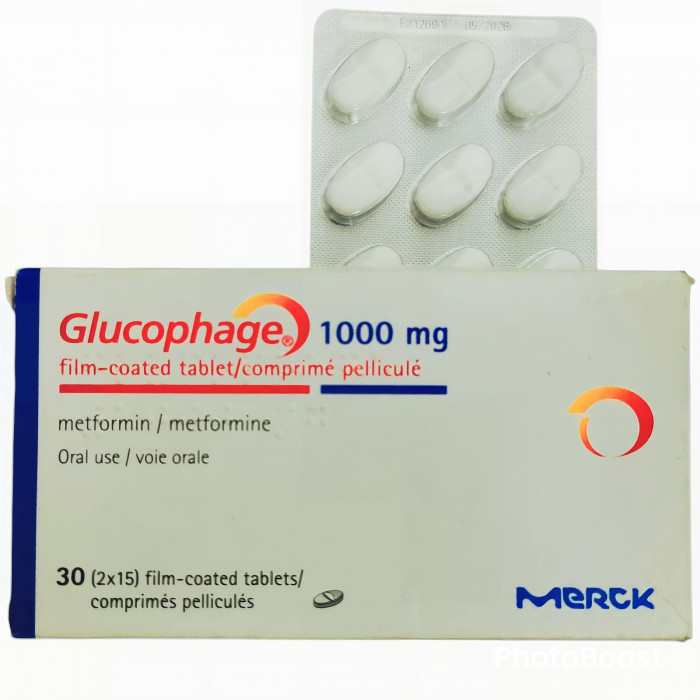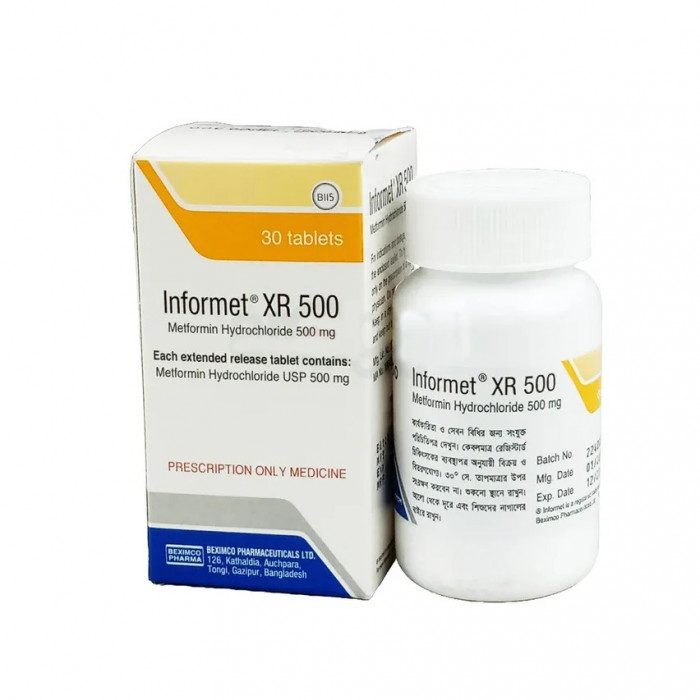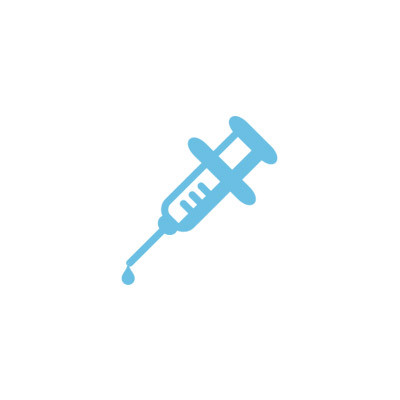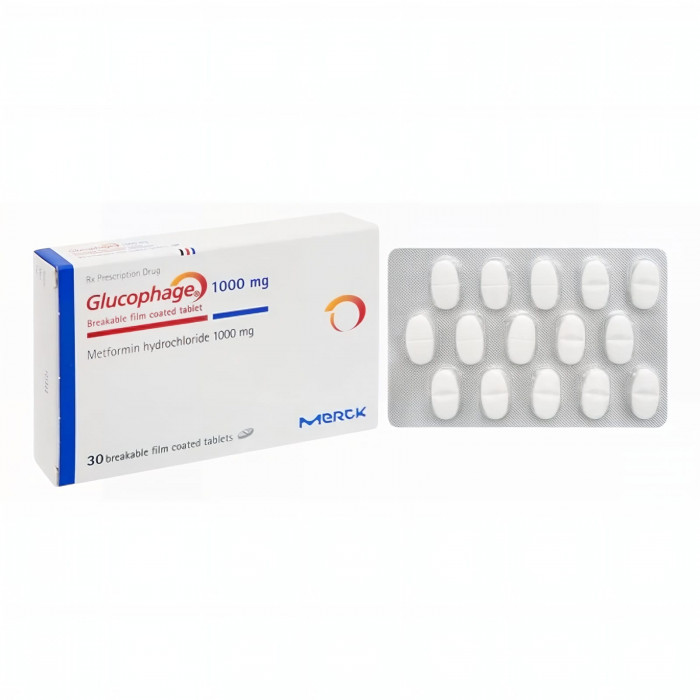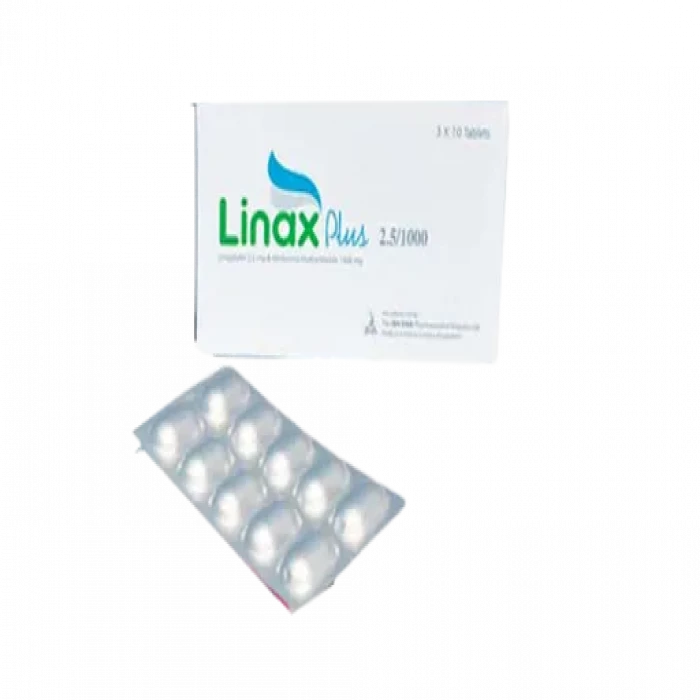
✔ 100% Authentic Product
👁️ Currently Viewing 1299
Generic Name: Linagliptin 2.5mg + Metformin Hydrochloride 1000mg
Company Name: The IBN SINA Pharmaceutical Industry Ltd.
Discount
Price: ৳ 103
MRP:
৳
110
6%
Off

100% Genuine Products, Guaranteed

Safe & Secure Payments, Always

Fast, Secure & Efficient Delivery

Proper Packaging
 Cash on Delivery - All over Bangladesh
Cash on Delivery - All over Bangladesh Regular Delivery - 12-24 Hours, Dhaka City* Charge Tk.39-59
Regular Delivery - 12-24 Hours, Dhaka City* Charge Tk.39-59 Regular Delivery - 24-48 Hours, Other Cities* Charge Tk.99-110
Regular Delivery - 24-48 Hours, Other Cities* Charge Tk.99-110
 ফ্রি ডেলিভারিঃ - ৯৯৯ টাকা+ অর্ডারে, ঢাকা
শহরে
ফ্রি ডেলিভারিঃ - ৯৯৯ টাকা+ অর্ডারে, ঢাকা
শহরে ফ্রি ডেলিভারিঃ - ২৯৯৯ টাকা+ অর্ডারে, ঢাকার
বাহিরে
ফ্রি ডেলিভারিঃ - ২৯৯৯ টাকা+ অর্ডারে, ঢাকার
বাহিরে
100% Genuine Products, Guaranteed
Safe & Secure Payments, Always
Fast, Secure & Efficient Delivery
Proper Packaging
 Cash on Delivery - All over Bangladesh
Cash on Delivery - All over Bangladesh Regular Delivery - 12-24 Hours, Dhaka City* Charge Tk.39-59
Regular Delivery - 12-24 Hours, Dhaka City* Charge Tk.39-59 Regular Delivery - 24-48 Hours, Other Cities* Charge Tk.99-110
Regular Delivery - 24-48 Hours, Other Cities* Charge Tk.99-110 ফ্রি ডেলিভারিঃ - ৯৯৯ টাকা+ অর্ডারে, ঢাকা
শহরে
ফ্রি ডেলিভারিঃ - ৯৯৯ টাকা+ অর্ডারে, ঢাকা
শহরে ফ্রি ডেলিভারিঃ - ২৯৯৯ টাকা+ অর্ডারে, ঢাকার
বাহিরে
ফ্রি ডেলিভারিঃ - ২৯৯৯ টাকা+ অর্ডারে, ঢাকার
বাহিরে
✅ Description:
Indications
This is indicated as an adjunct to diet and exercise to improve glycemic control in adults with type 2 diabetes mellitus when treatment with both Linagliptin and Metformin Hydrochloride is appropriate
Pharmacology
Linagliptin is shown to progress glycemic control in patients with sort 2 diabetes mellitus. Linagliptin is an inhibitor of DPP-4 (dipeptidyl peptidase-4), a protein that corrupts the incretin hormones GLP-1 (glucagon-like peptide-1) and GIP (glucose subordinate insulinotropic polypeptide). Hence, Linagliptin increments the concentrations of dynamic incretin hormones, fortifying the discharge of affront from pancreatic beta (β) cells in a glucose-dependent way and diminishing the discharge of glucagon from pancreatic alpha (α) cells within the circulation. Metformin Hydrochloride may be a biguanide sort of verbal antihyperglycemic sedate utilized within the administration of sort 2 diabetes. It brings down both basal and postprandial plasma glucose. Its component of activity is diverse from those of sulfonylureas and it does not deliver hypoglycemia. Metformin Hydrochloride diminishes hepatic glucose generation, diminishes intestinal assimilation of glucose, and makes strides affront affectability by an increment in fringe.
Dosage & Administration
Linagliptin & Metformin immediate-release tablet: The dosage of Linagliptin & Metformin should be individualized on the basis of both effectiveness and tolerability. The maximum recommended dose of 2.5 mg of Linagliptin and 1000 mg of Metformin Hydrochloride twice daily with meals. Dose escalation should be gradual to reduce the gastrointestinal (GI) side effects associated with Metformin Hydrochloride use.
Recommended starting dose: In patients currently not treated with Metformin Hydrochloride, initiate treatment with 2.5 mg Linagliptin and 500 mg Metformin Hydrochloride twice daily.
In patients already treated with Metformin Hydrochloride, start with 2.5 mg Linagliptin and the current dose of Metformin Hydrochloride twice daily.
For patients already treated with Linagliptin and Metformin Hydrochloride, individual components may be switched to this combination containing the same doses of each component.
Linagliptin & Metformin extend-release tablet: The dosage of this combination should be individualized on the basis of both effectiveness and tolerability, while not exceeding the maximum recommended total daily dose of Linagliptin 5 mg and Metformin Hydrochloride 2000 mg. this combination should be given once daily with a meal.
Recommended starting dose: In patients currently not treated with metformin, initiate this combination treatment with 5 mg Linagliptin/1000 mg Metformin Hydrochloride extended-release once daily with a meal.
In patients already treated with Metformin, start this combination with 5 mg of Linagliptin total daily dose and a similar total daily dose of Metformin once daily with a meal.
In patients already treated with Linagliptin & Metformin immediate-release tablet, switch to extend release tablet containing 5 mg of Linagliptin total daily dose and a similar total daily dose of Metformin once daily with a meal.
5 mg Linagliptin & 1000 mg Metformin Hydrochloride extended-release tablet should be taken as a single tablet once daily. Patients using 2.5 mg Linagliptin & 1000 mg Metformin extended-release tablets should take two tablets together once daily.
Interaction
Cationic drugs (amiloride, digoxin, morphine, ranitidine, trimethoprim, etc.): May reduce metformin elimination.
P-glycoprotein/CYP3A4 inducer (i.e. rifampin): The efficacy of this medicine may be reduced when administered in combination.
Contraindications
Although Linagliptin undergoes minimal renal excretion, Metformin Hydrochloride is known to be substantially excreted by the kidney. The risk of Metformin Hydrochloride accumulation and lactic acidosis increases with the degree of renal impairment. Therefore, this combination is contraindicated in patients with renal impairment. It is also contraindicated in acute or chronic metabolic acidosis (diabetic ketoacidosis) and in hypersensitivity to Linagliptin or Metformin Hydrochloride.
Side Effects
The most common side effects are nasopharyngitis and diarrhea. Hypoglycemia is more common in patients treated with this combination and sulfonylureas.
Pregnancy & Lactation
There are no adequate and well-controlled studies in pregnant women with this combination or its individual component, so it should be used during pregnancy only if clearly needed. Caution should also be exercised when it is administered to a lactating mother.
Precautions & Warnings
In a quiet with lactic acidosis who is taking Metformin, the medication ought to be ceased promptly and steady treatment expeditiously organizations. There have been postmarketing reports of intense pancreatitis. On the off chance that pancreatitis is suspected, expeditiously suspend Linagliptin & Metformin. Briefly cease Linagliptin & Metformin in patients experiencing radiologic thinks about with intravascular organization of iodinated differentiate materials or any surgical strategies requiring confined admissions of nourishment and liquids. Metformin may lower Vitamin B12 levels; so hematologic parameters should be observed annually.
Storage Conditions
Store below 30° C in a cold, dry, and light-protected location. Keep out of children's reach. Because touching the dropper tip to surfaces can contaminate the solution, avoid doing so. After 30 days from the date of initial opening, do not use.
⚠️Disclaimer:
At ePharma, we’re committed to providing accurate and accessible health information. However, all content is intended for informational purposes only and should not replace medical advice from a qualified physician. Please consult your healthcare provider for personalized guidance. We aim to support, not substitute, the doctor-patient relationship.




